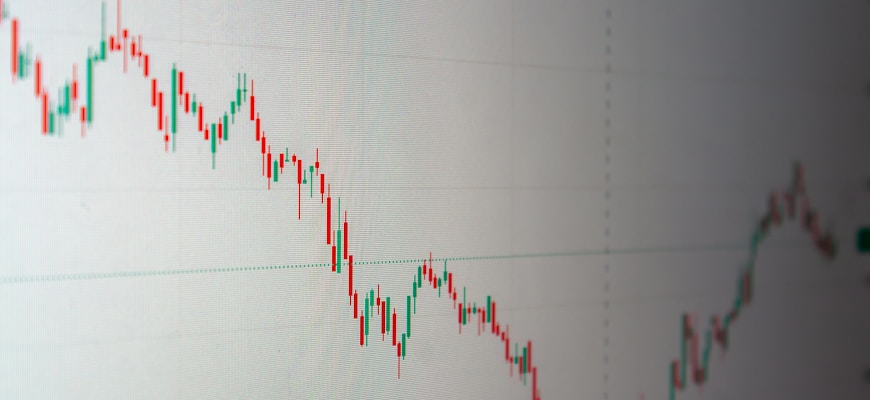How to Manage Emotional Decision-Making in Crypto Trading

- Understanding the role of emotions in crypto trading
- Strategies for controlling emotions during trading
- The impact of emotions on decision-making in crypto trading
- Tips for making rational decisions in a volatile market
- Psychological techniques to manage emotions in trading
- Balancing logic and emotions in crypto trading
Understanding the role of emotions in crypto trading
Emotions play a significant role in crypto trading, often leading to irrational decision-making that can result in financial losses. It is crucial for traders to understand the impact of emotions on their trading strategies in order to make informed and logical decisions.
One of the most common emotions that affect crypto trading is fear. Fear can cause traders to panic sell during market downturns, leading to missed opportunities for potential gains. On the other hand, greed can drive traders to hold onto assets for too long, hoping for even higher profits, only to end up losing money when the market reverses.
By recognizing the role of emotions in trading, traders can develop strategies to manage and mitigate their impact. This can include setting clear trading goals, establishing stop-loss orders, and diversifying their portfolios to reduce risk. Additionally, practicing mindfulness and staying informed about market trends can help traders make more rational decisions based on data rather than emotions.
Strategies for controlling emotions during trading
One effective way to manage emotions during crypto trading is by developing strategies to control them. Emotions can often lead to impulsive decisions that may not be in line with your trading plan. Here are some strategies to help you stay calm and rational during trading:
- Practice mindfulness: Take a moment to pause and focus on your breathing before making any trading decisions. This can help you stay present and avoid acting on impulse.
- Set clear trading goals: Define your trading goals and stick to them. Having a clear plan in place can help you make more informed decisions based on logic rather than emotions.
- Use stop-loss orders: Implementing stop-loss orders can help limit your losses and prevent emotional reactions to market fluctuations.
- Take breaks: If you find yourself feeling overwhelmed or emotional, take a break from trading. Stepping away from the screen can help you regain perspective and make more rational decisions.
- Seek support: Consider talking to a mentor, therapist, or fellow trader about your emotions. Getting an outside perspective can help you process your feelings and make more objective decisions.
By implementing these strategies, you can better control your emotions during crypto trading and make more informed decisions based on logic and analysis rather than impulsive reactions. Remember that emotions are a normal part of trading, but learning to manage them effectively can help you become a more successful trader in the long run.
The impact of emotions on decision-making in crypto trading
Emotions play a significant role in decision-making when it comes to crypto trading. Fear, greed, excitement, and anxiety can all influence the choices traders make, often leading to impulsive decisions that may not be based on rational analysis. When emotions take over, traders may buy or sell assets hastily, without considering the potential risks or rewards.
It is essential for traders to be aware of how their emotions can impact their decision-making process. By recognizing when emotions are influencing their choices, traders can take steps to mitigate these effects and make more informed decisions. Utilizing strategies such as setting stop-loss orders, sticking to a trading plan, and avoiding impulsive trades can help traders manage their emotions and make decisions based on logic rather than sentiment.
Furthermore, having a support system in place can also be beneficial for traders looking to manage their emotions effectively. Whether it’s seeking advice from a mentor, joining a trading community, or talking to a therapist, having someone to provide guidance and perspective can help traders navigate the emotional ups and downs of crypto trading.
Tips for making rational decisions in a volatile market
When dealing with the volatile nature of the crypto market, it is crucial to make decisions based on rationality rather than emotions. Here are some tips to help you navigate through the ups and downs of crypto trading:
- Do thorough research before making any investment decisions. Make sure you understand the market trends, the technology behind the cryptocurrencies, and the potential risks involved.
- Set clear goals and stick to your trading strategy. Avoid making impulsive decisions based on fear or excitement.
- Stay updated with the latest news and developments in the crypto world. Being informed can help you make more informed decisions.
- Diversify your portfolio to spread out the risk. Don’t put all your eggs in one basket.
- Control your emotions and avoid making decisions based on greed or panic. Take a step back and analyze the situation objectively.
By following these tips, you can improve your decision-making process in the volatile crypto market and increase your chances of success.
Psychological techniques to manage emotions in trading
When it comes to managing emotions in crypto trading, there are several psychological techniques that can be helpful in making rational decisions. Emotions such as fear and greed can often cloud judgment and lead to impulsive actions that may result in losses. By implementing these techniques, traders can better control their emotions and improve their overall trading performance.
- Mindfulness: Practicing mindfulness can help traders stay present and focused on the current moment, rather than being consumed by past losses or future gains. By being mindful of their thoughts and emotions, traders can make more rational decisions based on facts rather than emotions.
- Journaling: Keeping a trading journal can be a useful tool for tracking emotions and analyzing past trades. By writing down thoughts and feelings before, during, and after trades, traders can identify patterns in their behavior and make adjustments to improve decision-making in the future.
- Deep breathing: Taking deep breaths can help calm the mind and body during moments of stress or anxiety. By practicing deep breathing exercises, traders can reduce the intensity of their emotions and think more clearly when faced with challenging trading situations.
- Visualization: Visualizing successful trades can help traders build confidence and reduce fear of failure. By imagining positive outcomes and focusing on their goals, traders can cultivate a positive mindset that is conducive to making rational decisions in the market.
- Seeking support: Talking to a mentor, therapist, or fellow trader can provide emotional support and guidance in times of uncertainty. By sharing experiences and seeking advice from others, traders can gain perspective and learn new coping strategies for managing emotions in trading.
Balancing logic and emotions in crypto trading
When it comes to crypto trading, finding a balance between logic and emotions is crucial for making sound investment decisions. Emotions can often cloud judgment and lead to impulsive actions that may result in significant losses. On the other hand, relying solely on logic can make it challenging to take advantage of opportunities that may require a certain level of risk-taking.
One way to achieve this balance is by setting clear guidelines and sticking to a well-thought-out trading strategy. This strategy should consider both fundamental analysis, such as market trends and news, as well as technical analysis, like price charts and trading volumes. By following a structured approach, traders can reduce the influence of emotions on their decisions.
Another helpful tip is to practice mindfulness and self-awareness during trading sessions. By being aware of your emotions and how they may impact your decision-making process, you can take a step back when necessary and avoid making impulsive trades based on fear or greed. Taking breaks, meditating, or journaling about your feelings can all help in managing emotions effectively.
Moreover, seeking advice from experienced traders or mentors can provide valuable insights and perspectives that can help you navigate the complexities of the crypto market. Surrounding yourself with a supportive community can also offer emotional support and encouragement during challenging times.
Ultimately, finding the right balance between logic and emotions in crypto trading requires practice, discipline, and self-awareness. By developing a solid trading strategy, practicing mindfulness, seeking guidance from others, and staying connected to a supportive community, you can improve your decision-making process and increase your chances of success in the volatile world of cryptocurrency trading.



